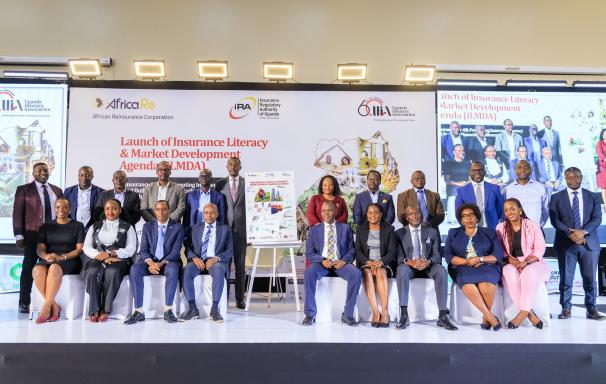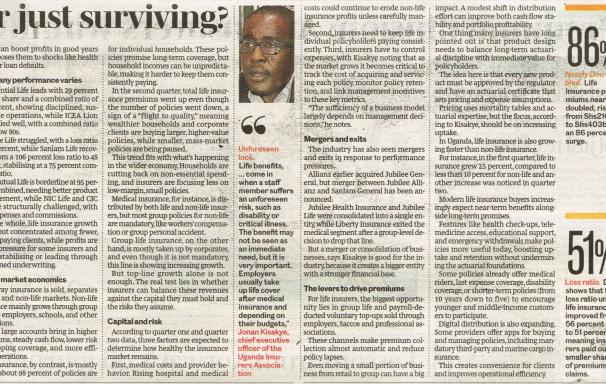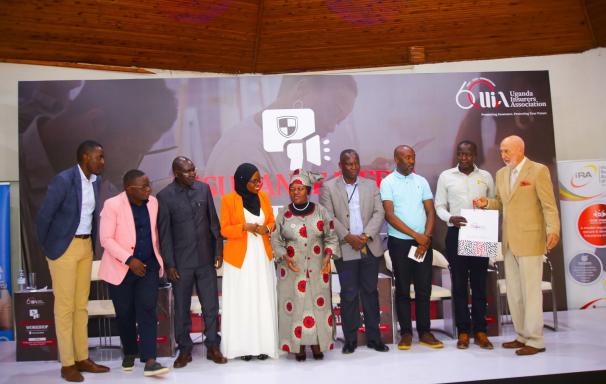Ugandan registered insurance companies have so far claimed business worth 55.3 million dollars (about 202 Billion Shillings) in underwriting oil and gas projects.
Of this, activities in the Tilenga Project, which is operated by TotalEnergies, account for 31.7 million Shillings while at the Kingfisher Development Area, activities have paid insurance premiums worth 7 million Shillings, and the rest, 14.7 million is from the activities under the East African Crude Oil Pipeline.
There are 36 insurance companies in the National Suppliers Database and 13 of these have so far been contracted by the oil and gas sector licensees to underwrite the different activities.
Previously, there were concerns that local insurance companies would not be able to benefit from the oil and gas sector due to an assumed lack of financial and technical capacity.
The Insurance Regulatory Authority of Uganda (IRA) rallied local companies which then formed the Insurance Consortium for Oil and Gas Uganda (ICOGU) to take advantage of the local content policy that provides that Ugandan citizens and companies would access at least 40 percent of the opportunities in the oil and gas sector.
IRA Chief Executive Officer, Haji Ibrahim Kaddunabbi Lubega urged the companies to be mindful of the global market shift toward sustainability and renewable energy.
“Uganda’s insurance industry must align with these changes,” he said, adding, “The energy transition presents challenges and opportunities for Uganda’s economy, and the insurance sector, through ICOGU, has a pivotal role in ensuring its success.”
To take advantage of Uganda’s transition towards a more diversified energy sector, Lubega advised the insurance industry to innovate to address risks, by developing new insurance products tailored to green energy projects, carbon capture initiatives and clean technology investments.
He also urged them to strengthen Reinsurance Capacity to handle large-scale claims, especially in complex energy projects, enhance Public-Private Partnerships to support sustainable energy financing through risk-sharing mechanisms, as well as build capacity and skills development to equip insurers with expertise in underwriting energy transition-related risks.
Paul Kavuma, the ICOGU Technical Committee Chairperson and CEO of Jubilee Allianz, says that since then, the companies have gained capacity in different areas including financial and technical, “to the point of exporting its competence in Oil and Gas within the region, like Nambia.”
Speaking at the ICOGU Energy Symposium 2025 under the theme: The Role of Insurance in the Energy Transition, Kavuma Paul promised that they will continue to grow and enhance its efficiency as insurers cover the risks associated with the Oil and Gas and the wider Energy sector.
The bulk of the insurance premium (45.6 million dollars) from the oil and gas has come from underwriting Tier 1 contractors’ activities, while 7.62 million went towards insurer Tier2 activities, according to Ernest Rubondo, the Executive Director, of the Petroleum Authority of Uganda.
Areas that have attracted insurers include Insurance and Reinsurance Brokerage Services and Insurance Policies; all construction risks; Third Party Liability, insurance for equipment including vehicle fleets, office equipment and premises; provident fund administration; Medical Insurance for staff across projects and Group Personal Accident and Group Life Insurance.
Richard Scott, Global Head of Renewables at Oneglobal Broking UK, in his keynote address at the Symposium, said Uganda’s oil and gas sector had the potential to attract many investors but that the cost of financial services was still high.
Oneglobal Broking and TRS Consultancy have extensive expertise in providing insurance solutions to various renewable projects worldwide and within the region.
“Considering the small size of projects in Uganda as well as the insurance decisions being dictated by pricing, OGB and TRS are open to setting up a local market facility to alleviate costs of insurance. We have established long-lasting partner relationships with markets in the area and are well suited to guide them in navigating Renewables projects,” said Scott.
He noted that the increasing risks in the renewable sector, particularly solar energy, which is vulnerable to extreme weather events like hailstorms calls for insurers to adapt to these evolving risks, drawing lessons from global markets, to ensure sustainable energy insurance solutions.
Jonan Kisakye, Uganda Insurers Association Chief Executive Officer, said the formation of the consortium had enhanced the understanding of the insurance sector by the members, especially in facilitating the insurance industry’s involvement in oil and gas projects.
Source: Uganda Radio Network (click here to view)



